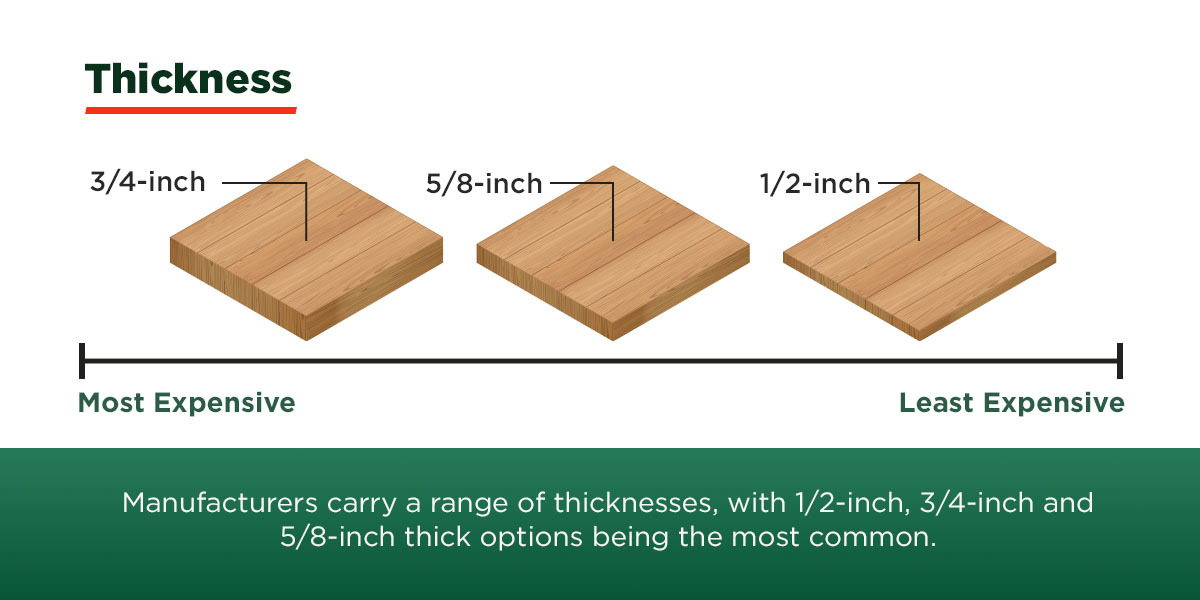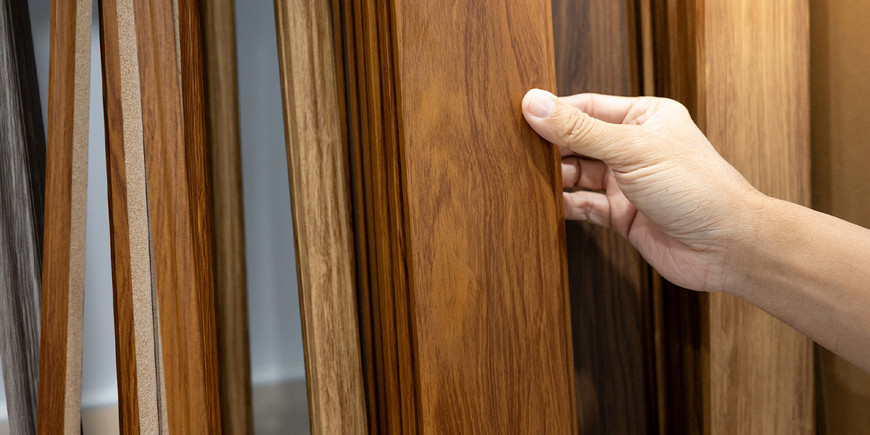How Much Are Hardwood Floors?
Posted by Ben Garelick (@BlueShirtBenny) on 17th Apr 2025
There is something charming and elegant about the look and feel of real hardwood floors. They can instantly add class to any room while increasing your home's value. With so many different types, you simply cannot go wrong with choosing this natural flooring type. Its durability, value and appeal are more than enough reasons to install hardwood floors in your home.
Knowing exactly how much hardwood floors cost and how their price is calculated can help you be prepared.
10 Factors Affecting Hardwood Floor Costs
Hardwood flooring cost depends on more than the amount of planks you order. For instance, how much are hardwood floors installed per square foot? Does wood species play a role? How will it be installed? There is a series of factors that affect its pricing — let's discuss them.
1. Cost per Square Foot
The average cost of hardwood flooring can range between $6 and $12 per square foot. This price includes material and labor fees. That said, other factors may increase this range, such as the room size, wood quality and the amount of labor needed. With that in mind, the average cost might fall in the $13 to $25 per square foot price range.
For example, if your room's size is 150 square feet, wood floor costs can be anything between $900 and $3,800 — it truly depends. Note that this range may vary further depending on where you buy the materials, who you choose to install the flooring and various market and supply conditions.
2. Hardwood Type
Start by considering the different types of hardwood available, which can range from solid and engineered hardwood and everything in between. Each material and the type of labor required for installation affects its total price. Your different options include:
- Solid hardwood: All-natural solid hardwood is about $5 to $28 per square foot. These floors require sealant to protect the wood grains against moisture, which may increase the price.
- Engineered hardwood: Engineered hardwood's price could range between just over $6 and $16 per square foot. It uses real wood veneer that is attached to a plywood base, which is why it can be a more affordable option compared to others. This type is ideal for more humid environments as it's less impacted by humidity changes.
3. Wood Species
There is a diverse selection of wood species to choose from, all with their unique benefits and use cases. How much real hardwood floors cost depends on quality — the better the species of wood is considered, the more it may rank up the price. Here are several common species with their average cost per square foot:
- Bamboo: You can expect bamboo to cost anywhere between $5 and $8 for its contemporary look.
- Cherry: With cherry adding rich color to low-traffic areas, you may pay around $11 for it.
- Hickory: As an ideal option for high-traffic areas, hickory's costs can range from $7 to $14.
- Mahogany: Mahogany can cost between $8 and $14 to install.
- Oak: Oak is especially durable and long-lasting, so you may pay between $4 and $14.
- Tigerwood: You could pay anywhere from $10 to $11 to achieve a strong, hearty, exotic hardwood look.
4. Hardness
Generally, the hardness of a hardwood correlates with its price — the harder it is, the higher its price. The Janka hardness test measures a hardwood's hardness. It measures how much pressure a specific wood species can handle, resisting denting and daily wear.
The harder the wood, the harder it can also be to install, which can further contribute to its price. For example, Brazilian walnut may require more labor than a softwood like pine.
5. Thickness
Manufacturers carry a range of thicknesses, with 1/2-inch, 3/4-inch and 5/8-inch thick options being the most common. The wood's thickness also correlates with its price — as one increases, so does the other. Although the costs rise, a thicker hardwood may withstand everyday use better.

6. Width
Hardwood flooring can be between 2 and 5 inches, depending on the manufacturer. Wider planks can cost more than narrower options. Although their price may go up, you may save on labor costs with fewer boards needing installation.
7. Wood Grade
Hardwood falls into specific grades based on the standards set by the National Hardwood Lumber Association (NHLA). Here are the three categories:
- Low-grade: This grade is more budget-friendly and ideal for low-traffic areas. It includes wood species like pine and aspen. Proper maintenance can enhance their life span. That said, these floors may require more frequent refinishing or replacement.
- Mid-grade: This category combines the best of both the other grades. Mid-grade wood is durable yet also affordable. Wood species like oak and maple are good examples. Proper maintenance will increase this flooring's life span, and it won't require as much refinishing.
- High-grade: Wood species like teak and Brazilian walnut fall under this category. These high-grade, exotic species are popular for their resilience and appeal, making them the more expensive of the three grades. They can last for generations with proper maintenance.
8. Color and Grain
In addition to species, wood color can vary greatly. Planks can either come in light and pale, warm and medium or rich and dark tones. They also have different grains or patterns, which may impact their pricing further. For example, a plank with a distinctive pattern may be more expensive than plain planks.
9. Finishing and Coating
A finish is a protective coating on hardwood to help increase its durability. Some hardwood floors may already come prefinished, whereas others require a finish after installation. There are also different types of finishes with varying costs, such as:
- Aluminum oxide
- Polyurethane
- Resin
- Wax
- Varnish
- Lacquer
10. Installation
The method of installation also plays a role. You may choose between DIY or hiring professionals to do it for you. Although the upfront costs may be higher when using a professional service, you'll have peace of mind that your hardwood flooring is installed properly and securely. You'll also avoid wasting flooring due to incorrect measurements or installation. Many elements impact the installation process, such as:
- Temperature and humidity
- Manipulation around room furniture
- Old floor removal
- Subfloor preparation or repairs
- Joist repair
Budgeting for Hardwood Floors
If you're considering installing hardwood in your home, you'll need to carefully balance the costs, quality and installation expenses:
- Determine the maximum amount you can spend.
- Consider the factors listed above.
- Allocate funds for the materials, installations and extras.
- Plan for unexpected costs, like subfloor repairs.
If you want to save some money, here are a few tips to keep in mind:
- Buy in bulk or sales/clearances.
- Choose engineered wood for its durability and affordability.
- Consider alternatives like laminate or vinyl.
- Opt for prefinished floors to avoid additional installation costs.
- Use less expensive species like oak or mahogany.
Long-Term Value and Maintenance
Hardwood floor's long-term value and maintenance go hand in hand. Well-maintained floors can generally last 50 to 100 years, so they are a smart investment that provides long-term value for any home. The good news? They're relatively easy to maintain when compared to carpet or high-maintenance tiles. With simple habits, you can keep them looking great for decades.
Purchase Quality Hardwood Floors at Carpet & Tile Mart
At Carpet & Tile Mart, we have a decades-long history of helping people like you make the right flooring choices for their homes and lives. When you shop hardwood flooring with us and use our specialty installation services, you get a two-year installation warranty — something not offered by most companies.
Visit us in-store to touch, feel and experience the quality of our hardwood flooring options.




